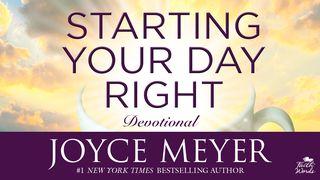Undying Commitment: A 14-day Study in StewardshipSample

Like a Father
The father-son analogies in this chapter are deeply moving. The portrayal of the bereaved father yearning for his troubled child calls to mind Jesus' New Testament parable of the lost son (see Lk 15:11-32). In Hosea 11 God calls out to his rebellious people with all of the pathos of unconditional love. Theologian Kenneth Boa describes that unconditional Father-love:
To know God is to love him, because the more we grasp - not merely in our minds but also in our experience - who he is and what he has done for us, the more our hearts will respond in love and gratitude. 'We love because he first loved us' (1Jn 4:19). When we discover that the personal Author of time, space, matter, and energy has, for some incomprehensible reason, chosen to love us to the point of infinite sacrifice, we begin to embrace the unconditional security we longed for all our lives. God's love for us is spontaneous, free, uncaused, and undeserved; he did not set his love on us because we were loveable, beautiful, or clever, because in our sin we were unlovable, ugly, and foolish. He loved us because he chose to love us. As we expand our vision of our acceptance and security in Christ who loved us and gave himself for us, we begin to realize that God is not the enemy of our joy but the source of our joy. When we respond to this love, we become the people he has called us to be.
But Israel kept forgetting the nature of God's Father-love. Time after time the people turned away from their Father, leaving their 'home,' to hobnob with other nations, to spend prosperity and wealth God had given them on their own pleasures, and to declare their 'I can do it myself' independence. They kept forgetting that God's laws and his discipline, like those of any good father, were for their good, and not to restrict their freedom. So it is with all of us, especially when we are positioned in God's economy not only as children but as stewards. Dr. Boa continues:
As we grow to know and love God, we learn that we can trust his character, promises, and precepts. Whenever he asks us to avoid something, it is because he knows that it is not in our best interests. And whenever he asks us to do something, it is always because it will lead to a greater good. If we are committed to following hard after God, we must do the things he tells us to do. But the risk of obedience is that it will often make no sense to us at the time. It is countercultural to obey the things the Holy Spirit reveals to us in the Scriptures. Radical obedience sometimes flies in the face of human logic, but in these times our loving Father tests and reveals the quality of our trust and dependence on him.
The father-son analogies in this chapter are deeply moving. The portrayal of the bereaved father yearning for his troubled child calls to mind Jesus' New Testament parable of the lost son (see Lk 15:11-32). In Hosea 11 God calls out to his rebellious people with all of the pathos of unconditional love. Theologian Kenneth Boa describes that unconditional Father-love:
To know God is to love him, because the more we grasp - not merely in our minds but also in our experience - who he is and what he has done for us, the more our hearts will respond in love and gratitude. 'We love because he first loved us' (1Jn 4:19). When we discover that the personal Author of time, space, matter, and energy has, for some incomprehensible reason, chosen to love us to the point of infinite sacrifice, we begin to embrace the unconditional security we longed for all our lives. God's love for us is spontaneous, free, uncaused, and undeserved; he did not set his love on us because we were loveable, beautiful, or clever, because in our sin we were unlovable, ugly, and foolish. He loved us because he chose to love us. As we expand our vision of our acceptance and security in Christ who loved us and gave himself for us, we begin to realize that God is not the enemy of our joy but the source of our joy. When we respond to this love, we become the people he has called us to be.
But Israel kept forgetting the nature of God's Father-love. Time after time the people turned away from their Father, leaving their 'home,' to hobnob with other nations, to spend prosperity and wealth God had given them on their own pleasures, and to declare their 'I can do it myself' independence. They kept forgetting that God's laws and his discipline, like those of any good father, were for their good, and not to restrict their freedom. So it is with all of us, especially when we are positioned in God's economy not only as children but as stewards. Dr. Boa continues:
As we grow to know and love God, we learn that we can trust his character, promises, and precepts. Whenever he asks us to avoid something, it is because he knows that it is not in our best interests. And whenever he asks us to do something, it is always because it will lead to a greater good. If we are committed to following hard after God, we must do the things he tells us to do. But the risk of obedience is that it will often make no sense to us at the time. It is countercultural to obey the things the Holy Spirit reveals to us in the Scriptures. Radical obedience sometimes flies in the face of human logic, but in these times our loving Father tests and reveals the quality of our trust and dependence on him.
Scripture
About this Plan

We often associate the word stewardship with money. While it’s true that we’re called to be good stewards of our finances, stewardship certainly doesn’t end with our bank accounts. In this plan, you’ll be challenged to consider the connection between stewardship and commitment, and you’ll be inspired to elevate your relationship with God to the top of your priority list. Each day’s reading includes a brief Scripture passage and relevant devotional.
More
We'd like to thank The Stewardship Council, creators of Zondervan's NIV Stewardship Study Bible, for the structure of the Undying Commitment: A 14-day Study in Stewardship. For more information about this plan, the NIV Stewardship Study Bible, or hundreds of stewardship resources, please visit their site at http://www.stewardshipcouncil.net/
Related Plans
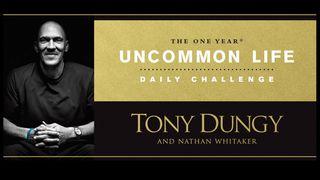
The Uncommon Life Daily Challenge from Tony Dungy

Celebration through Stewardship: A 14 Day Journey
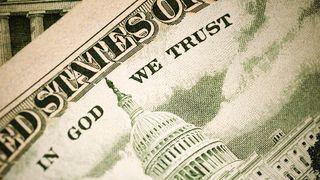
Money Matters: Devotions From Time of Grace
God's Ultimate Casting Call

Dave Ramsey’s Financial Wisdom From Proverbs

Experience 14 Days of Fresh Air
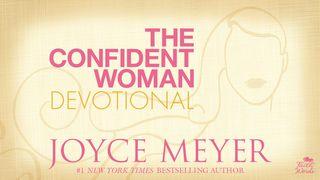
The Confident Woman Devotional

Ending Your Day Right
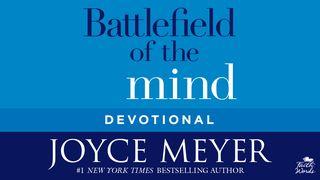
Battlefield of the Mind Devotional
